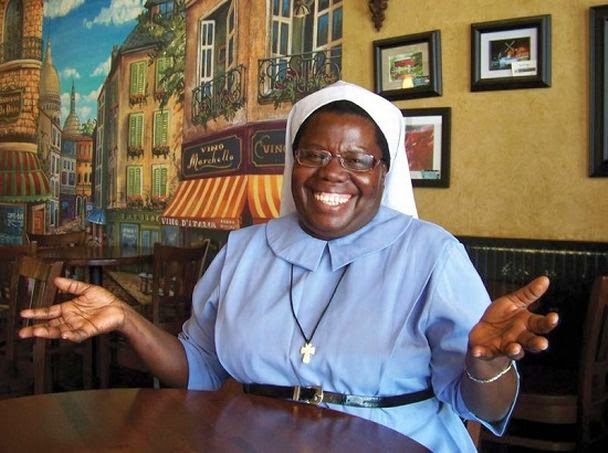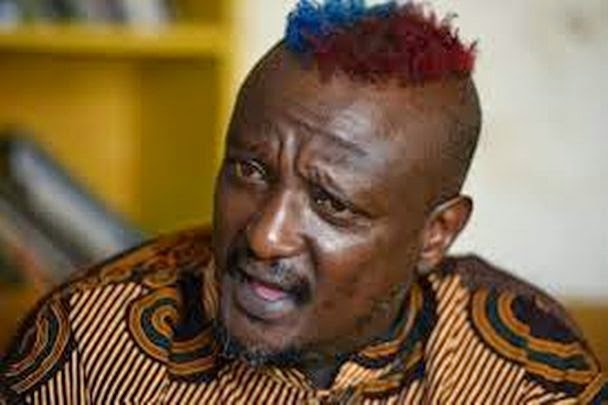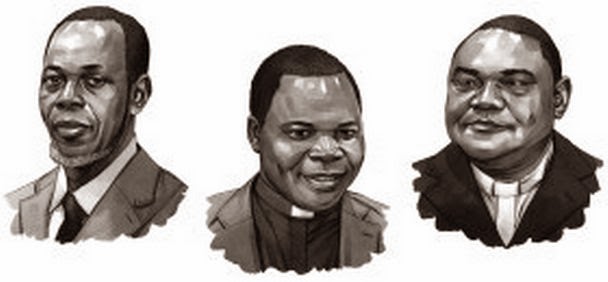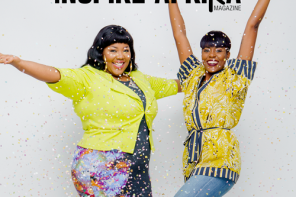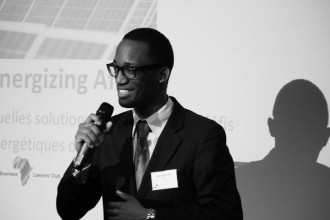Then there are the unknowns, the ones who move mountains away from the glare of the media and the international community.
Rosemary Nyirumbe – I personally confess to not knowing about this inspirational woman before this TIME issue was released. It’s people like her who make up the back-bone of a country. Deep in the villages of Uganda Sister Rosemary is helping women who have been destroyed as result of violence, sexual exploitation and rape put their lives back together. This includes women who were girl child soldiers, and who have children as a result of rape. She does this at the Saint Monica Girls’ Tailoring Centre which provides comfort, shelter and most importantly security. Sister Rosemary is the main subject of a bestselling book Sewing Hope, and documentary of the same name. They both depict her selflessness while at the same time resonating that even though the war is over, the battle to regain normalness is still being fought.
“Sister Rosemary has the power to rekindle a bright light in eyes long gone blank,” says Forest Whitaker who profiles her. As someone who has watched the documentary I don’t have words to describe just how amazing she is, you’re going to have to see yourself.
Binyavanga Wainaina – Being a homosexual in most African countries could result in you being thrown in jail for the rest of your days or death for you and your loved ones. It is for this reason that Wainaina kept the secret of his sexuality from the tender age of 10years old. Once he lost a friend in 2012, a brother in the homosexual community he broke his silence and ‘came out.’ Through his writing he has influenced a generation who embrace his art even though homosexuality is constantly demonized.
We can never move forward or create anything new without revolution. That is exactly what Binyavanga Wainaina has done. He has given many homosexuals across the country a voice, and created a conversation that was once completely mute. He was profiled by Chimamanda Adichie.
Iman Omar Kobine Layama, Archbishop Dieudonné Nzapalainga and Reverand Nicolas Guérékoyame-Gbangou – “Faith leaders on the front line,” is what Jim Wallis their profiler calls them. In Africa where religion and tribe are often used as reasons to commit horrendous crimes these three use them as reasons to promote and maintain peace. In Central African Republic these three men all of different religions “work tirelessly….to hold their country together.”
They lead by example which is the most exemplary form of leadership. Imam Layama now live with Archbishop Nzapalainga because the Imam could no longer live in his own home because he was being targeted. They continue to push for peace against all odds and even though it is a small one, they are making a difference. As the Imam said “Politics try to divide the religious in our country, but religion shouldn’t be a cause of hate, war or strife.”
Ory Okolloh – A holder of Harvard Law degree, a former Google Policy Maker and the co-founder of the innovative Ushahidi – if you ask me it has been a long time coming that Ory Okolloh ended up on the TIMEs 100 Most Influential People List. She embodies entrepreneurship and social justice. I am a true believer in the concept of a silver lining, but for Okolloh that is simply not enough. “Ory makes it her mission not to give aid but to support African entrepreneurs and citizens in building their own societies,” says Esther Dyson; who did her profile. Okolloh comes from a poor background where she was in and out of school because of lack of school fees but had the brains and the drive to dare for a brighter future. Her brains carried her all the way to Havard and the love of her continent brought her home.
Through her work at the Omidyar Government Transparency Initiative in Africa, Okolloh is teaching all entrepreneurs that not coming from means or not always having the resources is not an excuse for failure.

